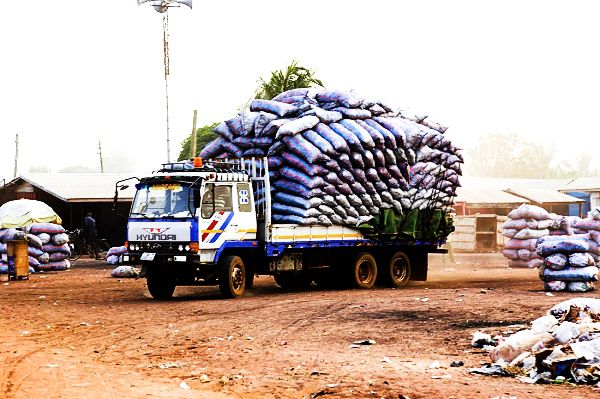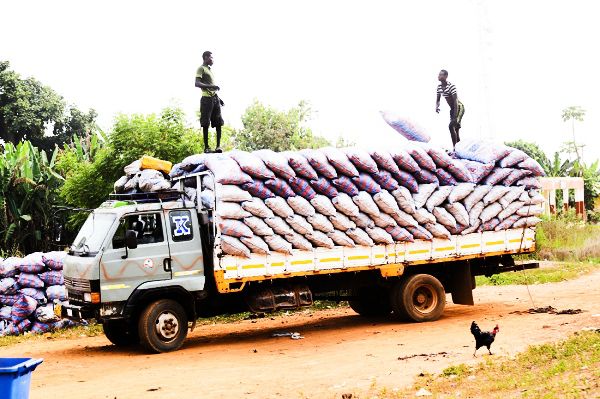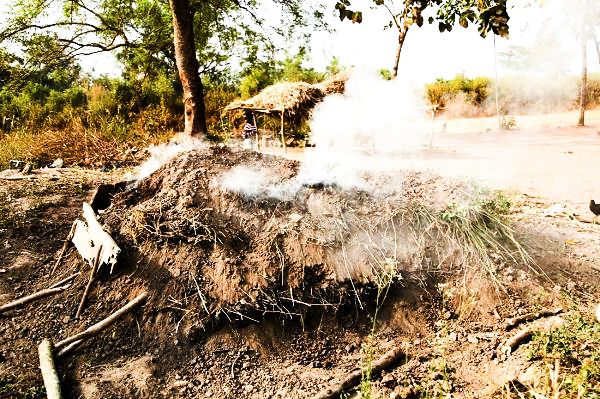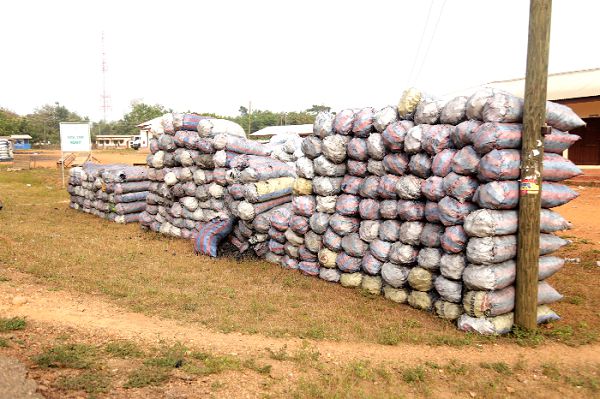
Farmers abandoning farming for charcoal burning• But assembly warns of prosecution of offenders
Charcoal burning in the Kwahu Afram Plains is brisk business as some of the farmers, particularly the yam and maize farmers, are abandoning their farms and turning to it.
This is because the farmers see the charcoal burning as more lucrative compared to the drudgery they always have to go through on their farms and later have to wait until the crops mature.
Advertisement
The business, however, is gradually taking a huge toll on the vegetation of a once beautiful forest stretching from Ekye Amanfrom through to Agordeke, as trees are felled to be used as raw material for the burning of charcoal.
Brisk business
Charcoal burning is, therefore, a common sight once you move few kilometres into the villages from Donkorkrom, Maame Krobo or Tease.

On a daily basis, particularly on Thursdays and Mondays, which are the market days for Donkorkrom and Maame Krobo respectively, big Kia trucks are seen dangerously loaded with hundreds of bags of charcoal meandering their way up and down the Kwahu Mountain for Kumasi, Accra or any of the big towns.
Make farming attractive
The farmers say unless the government puts in place measures to address their concerns such as access to market, storage facilities, access to finance and protection of their produce from the cattle herdsmen, farming would continue to be seen as an unattractive venture.
They particularly mentioned the activities of herdsmen, which they said was the major challenge to farming in the area, acknowledging the move by the government to develop fodder banks in the area as laudable but woefully inadequate.
In an interview with some of such farmers at the Maame Krobo Market last Monday and other parts in the plains, the farmers admitted that charcoal burning, though equally strenuous, was a more lucrative business and a faster way to make money than farming where normally it would take two to three months to harvest the crops.
Farmers
A yam farmer at Kwesi Fanti, Kojo Nsiah, contended that the serious aspect of it was that “after all the suffering you will struggle to get good market for your products or worse still, you may have all your products destroyed by cattle in just hours”.

A maize and yam farmer, Mr Seidu Abdulai, who also suffered in the hands of the cattle at Kuranchi Krachi, said currently, he cultivated enough just for his family but turned his attention to the charcoal production “because that one does not go bad if the truck fails me or is not destroyed by the cattle”.
He explained that sometimes farm products were stranded on the way to the market for days and at the end, the goods sold were used to settle the transportation cost.
Mr Abdulai also believed that charcoal burning was better than farming since the risks involved in farming were far more than those in charcoal burning.
Confrontations
A yam, maize and rice farmer at Sankasu, Mr Elias Dabuo, whose farm was entirely destroyed by cattle, resulting in the shooting and killing of three cattle, was dragged to court by the herdsmen.
He believed that the herdsmen weren’t going away any time soon and, therefore, to avoid any confrontation with them, many despondent farmers had abandoned their farms altogether to burn charcoal.

Mr Dabuo expressed regret that the court case caused him to squander all his savings, which nearly affected the progress of his daughter’s education.
Assembly concerns
In an interview at his office, the District Chief Executive (DCE), Mr Samuel Kena, said the bye-laws of the assemblies were clear on charcoal burning, stressing that only dried wood was permitted to be used as charcoal and anyone found cutting down trees to burn charcoal would be prosecuted.
He said in some parts of his district, the chiefs, in collaboration with the district, had outlawed charcoal burning, adding that the practice was adversely affecting the climate pattern in the area.



